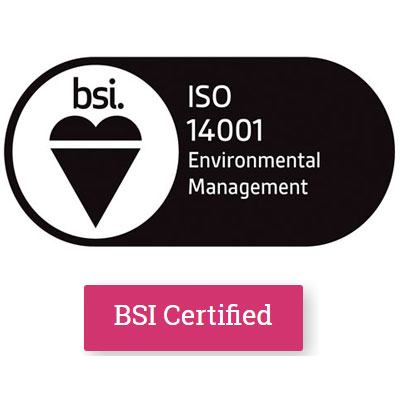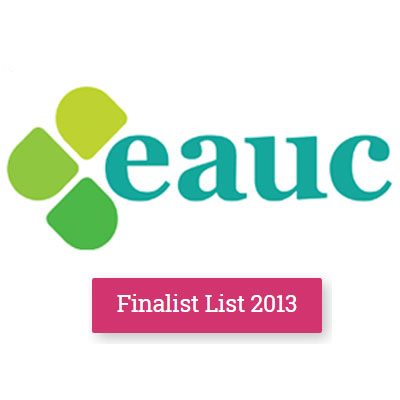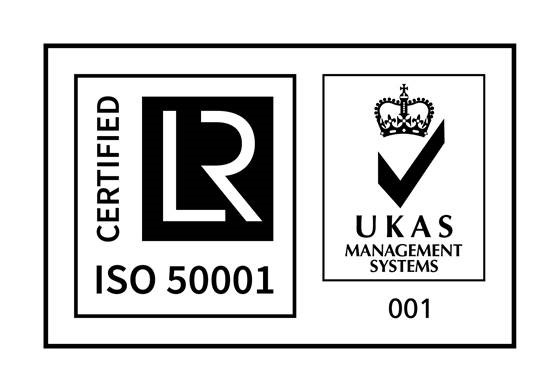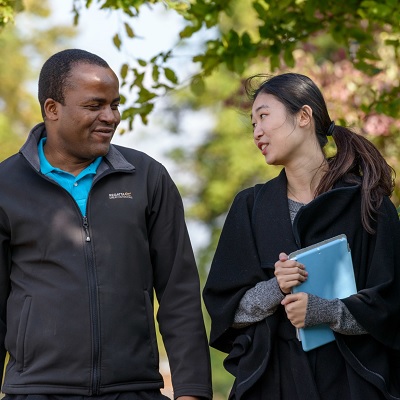We are committed to becoming a sustainable university, building on our teaching, research and operational excellence.
We aim to achieve this by managing the environmental risks and impacts associated with our work. Read more about the actions we are taking, progress we have made and how you can help us to reduce our environmental impacts.
Biodiversity and grounds
Through collaborative management with our grounds contractor, we aim to increase conservation areas on campus.
Since 2013 the University has been steadily improving habitats on site, increasing the areas targeted for biodiversity actions. This has gone from 1% to around 10% of the main campus area by 2020/21.
Further information can be found on our Biodiversity web page.
Buildings and infrastructure
As the University evolves, Cranfield is committed to ensuring it does so in a sustainable manner. All new buildings and major refurbishments will meet BREEAM Excellence requirements.
Further information can be found on our Sustainable Buildings and Infrastructure web page.
Carbon and energy management
Since 2010 the University has been driving down carbon emissions and by 2020/21 had achieved a 42% reduction in scope 1 and 2 emissions compared with a 2005 baseline. This is significant progress which was driven by our investment in renewable energy, energy efficiency and behaviour change initiatives.
In 2020, the University committed to a set of ambitious new targets including Net Zero Carbon by 2030. This covers all University activities and includes scope 3 emissions.
Further information can be found on our Carbon and Energy Management web page.
Education for sustainable development
Our aim is to ensure our graduates are equipped with the skills, knowledge and experience to make a positive contribution to sustainable development. While several of our programmes directly relate to sustainability, this concept is integral throughout our teaching, and our research project recommendations also include guidelines for sustainability where appropriate so that our influence radiates as far as possible.
Cranfield University has signed up to the United Nations Sustainable Development Goal Accord. Signing this accord makes clear Cranfield’s ongoing focus on bringing academic expertise, industry insight and new technological developments to government, business and wider society. The teaching at the University has a huge impact – we are committed to delivering education around sustainability across our curriculum, in a powerful and relevant way for students. You can read more about our impact we are making on our Sustainable Development Goal web pages.
Cranfield University Living Laboratory is a testbed for transformative technologies and new approaches to deliver enhanced social, economic and environmental outcomes in urban, transport and infrastructure systems. With our own airport, solar power farm and range of large-scale facilities, the Cranfield campus is a microcosm of a modern city, where it is possible to experiment with innovation at scale using all of the infrastructure of an urban environment.
Engagement and recognition
Cranfield University is committed to engaging staff and students in environmental initiatives both on campus and within the local community. We run a series of exciting campaigns, talks, tours and volunteering events throughout the academic year, and engage with an active staff and student green team.
In 2017, we become a finalist at the Green Gown student engagement category. Watch our video submission.
Through our efforts, we have also won prizes with the Wildlife Trust for ‘Best Wildlife Garden’ and ‘Best Employee Engagement’ .
For more information, please see our Engagement and Recognition web page.
Environmental policy and governance
We have set a number of ambitious challenging environmental objectives in support of our Environmental Policy and Energy Code of Practice. They are managed through our ISO 14001 certified environmental management system, and through our ISO 150001:2011 certified energy management systems. An overarching board of senior management, supported by the Energy and Environment Team, has responsibility for providing oversight and direction in managing our environmental impacts.
Food and procurement
We are committed to incorporating circular economy principles into our procurement processes as part of our resources and waste strategy. The University is also working towards achieving level 4 of Defra’s Flexible Framework for Sustainable Procurement.
We are working with our catering teams to improve sustainability of our on-campus food outlets, including reducing food waste, sourcing local, fairly produced and low-carbon food, reducing sale of red meat, and reducing packaging waste.
For more information, please go to our Food and Procurement web page.
Sustainable travel and transport
In 2020, the University set an ambitious new target to reduce single car commuting to campus by 50% by 2030. The sustainable commuting target continues to focus on promoting alternatives to the car. Walking, cycling and travelling by bus are the main options as set out in the University 'Travel Plan'.
With investment into bus services, cycling facilities, car sharing support and new cycle/walking pathways from the village to campus, single car occupancy commuting has reduced significantly.
Further information can be found on our Travel and Transport web page.
Waste and recycling
In 2020, the University committed to a new target for ‘Zero Avoidable Waste’ by 2030. The aim is to minimise waste ending up in landfill or incineration and to embrace the application of circular economy principles.
The management of waste has improved significantly since the baseline year 2010. The University also worked to increase the proportion of waste going for recycling, composting and anaerobic digestion through providing a wider range of facilities for segregation into individual recyclable waste streams and corresponding internal bin facilities.
Further information can be found on our Waste and Recycling web page.
Water and discharges
The University has set an ambitious new target to reduce water consumption by 50% by 2030, against a 2010 baseline.
Water use has been reduced by eliminating leaks through replacing aging pipework and working alongside the Living Lab project to invest in metering and encouraging behaviour change.
Further information can be found on our Water and Discharges web page.



